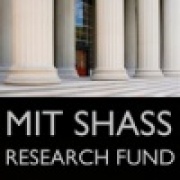News Archive 2020
School news from 2020.
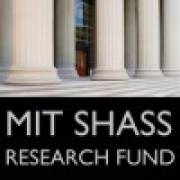
SHASS announces six Research Fund recipients for 2021
The SHASS Research Fund supports MIT research in the humanities, arts, or social sciences that shows promise of making an important contribution to the proposed area of activity.
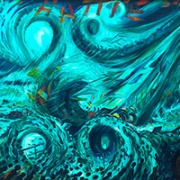
SOLVING CLIMATE
On planetary change and human health
MIT anthropologist Amy Moran-Thomas reflects on the deep connection between planetary and human well-being: “When I think of health now, I think of the disarray in bigger ecosystems and infrastructures that is also landing in human bodies.”
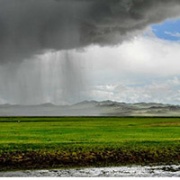
SOLVING CLIMATE
Climate change linked to rise and fall of medieval nomadic empires
Paleoclimatology provides important context for examining the activities of historic human societies. Meanwhile, present-day Mongolia is experiencing devastating droughts and winter weather as a result of global climate change.

MIT SHASS welcomes Judah Friedlander for virtual live stand-up comedy.
The 30 Rock actor/comedian's career spans film, televison over two decades.
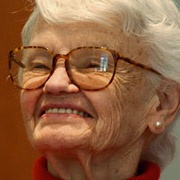
IN MEMORIAM
Judith Jarvis Thomson 1929-2020
The influential MIT philosopher was among the most significant moral philosophers of our time, and "the atomic ice-breaker for women in philosophy."

MAKING A JUST SOCIETY
The Bluest Eye turns 50
Commentary by MIT Professor Sandy Alexandre on Toni Morrison's debut novel: "Morrison’s exquisite language has always given her readers a variety of ways, routes, and turns of phrase to understand the world, so perhaps it’s no surprise that she has rendered something like 'structural racism' comprehensible."
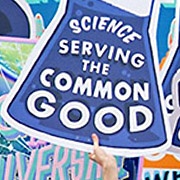
INSIDE THE CLASSROOM
Scientists as engaged citizens
In a new intersectional class from MIT Women's and Gender Studies, (WGS.160/STS.021) students explore how STEM researchers bring their knowledge to bear on behalf of major societal and global issues.

MAKING A JUST SOCIETY
Native American and Indigenous scholarship, education, and creativity in MIT's humanistic fields
This collection highlights works by and about Indigenous and Native American faculty, students, alumni, and visiting scholars in the humanities, arts, and social science fields in the MIT SHASS community.
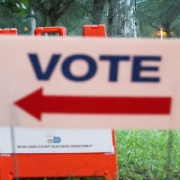
ELECTION 2020
20 October 2020
Doomsday scenarios abound, but the next president will be decided by the voters. Not the courts, not congress
Despite how tempting it will be for President Trump’s team to use all the tools at its disposal to hold onto power, writes Charles Stewart III, in the end, the election will be decided at the ballot box.
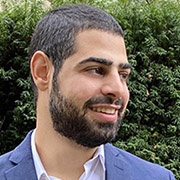
MEET OUR STUDENTS
Profile | Nasir Almasri '21
Political science PhD candidate studies conflicts that emerge at the intersection of politics and religious traditions, with a focus on humanizing those involved.
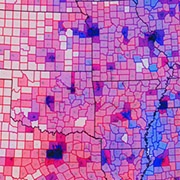
ELECTION 2020
3 Questions: Adam Berinsky on the responsibilities of political leadership and how to assess election polls
"It's the job of our leaders to stand up and challenge unsubstantiated rumors and outright falsehoods. Politicians have tremendous power to lead and to shape information, and voters need to remember this when they head to the polls — in this and every election."
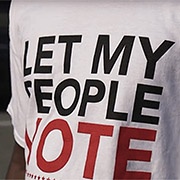
MAKING A JUST SOCIETY
3 Questions: Ariel White on voter rights and re-enfranchisement
"The problems in the Florida case have drawn our attention to how widespread, how life-disrupting, and how racially-disparate the experience of legal debt is for people who have passed through the criminal legal system."
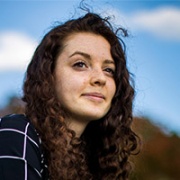
MEET THE MIT BILINGUALS
Darya Guettler ’21 | MechE + Political Science
Combining degrees in mechanical engineering and political science, MIT senior Darya Guettler '21 advocates for climate policy, sustainable technologies, and equitable, inclusive processes.

HONORS AND AWARDS
115 graduating MIT seniors inducted into the Phi Beta Kappa Society
A remarkable cohort of graduating seniors in the Class of 2020 were honored for excellence in the liberal arts.
MIT SHASS MEDIA PUBLICATIONS
At-A-Glance | List of external media publications
Research-based insights, for policy and public understanding of the Covid-19 pandemic, from the MIT-SHASS academic community

MEDIA AND THE PANDEMIC
CNN and Sesame Street team up on Town Halls for kids
MIT media scholar Prof Heather Hendershot and children's literature scholar Prof Marah Gubar discuss the programs, which focus on both the pandemic and racism.

MEDIA AND THE PANDEMIC
Professors Heather Hendershot and Marah Gubar discuss CNN/Sesame Street Town Halls for children on the pandemic, racism
"I'm interested in thinking about the town halls as media events and, more specifically, as political media events. Cable news is so polarized right now, and when you deal with kids and anything with political dimensions, it’s sort of inherently a hot potato situation."
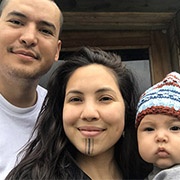
MIT INDIGENOUS LANGUAGE INITIATIVE
Saving Iñupiaq: Annauk Denise Olin
Olin, a graduate student in linguistics, is working to help her Alaska Native community preserve their language and navigate the severe impacts of climate change on their coastal village.

THE MEANINGS OF MASKS
Venetian Masks | Jeffrey S. Ravel
Masks for Carnival — and for finessing an archaic political order: "By the eighteenth-century in Venice, people had grown accustomed to wearing masks in public perpetually, not for health reasons but for social and cultural ones. Furthermore, the Venetian state actually required its citizens and visitors to the Republic to don masks in many public spaces."
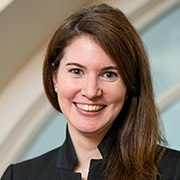
THE MEANINGS OF MASKS
Persona: Masks in the Graeco-Roman World | Stephanie Ann Frampton
"In Latin, one of the words for mask is persona, thought to have meant 'something through which sound passes' (per- 'through,” sono 'to make a sound')... Even in the time of Cicero, persona was already being used to describe the 'part' or 'character that one sustains in the world' — in other words, the role or roles we play in society."
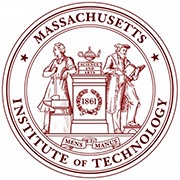
MIT INFORMATION + RESOURCES
MIT Now
Adapting to Covid. Staying Connected. Together, we’re committed to tackling Covid-19 the MIT way – by standing with the science, working the problem, and modeling the solution for our community and beyond. Our minds, hands, and hearts can make a difference.

THE MEANING OF MASKS
The Masks of Empire, Art, Politics, and War | Catherine Clark
"Ultimately, history reminds us that masks can produce meaning whether they sit on our faces or our kitchen tables."

EDUCATION
MIT SHASS welcomes new faculty.
The School of Humanities, Arts, and Social Sciences warmly welcomes six new professors to the MIT community. They arrive with diverse backgrounds and vast knowledge in their areas of research, which include technology and identity; imperial and modern China; musical ensembles; immigration and voting law; cyber warfare; and the history of environmental management.
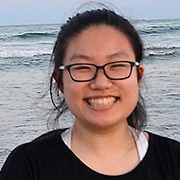
MEET THE MIT BILINGUALS
Kathryn Tso ’22 | History + Materials Science
Tso, who is earning a double major in history and in materials science, finds that materials science enables her to explore environmental chemistry and issues related to waste and pollution, while history provides her with context — revealing the interplay of technology with society and illuminating the key roles that government often plays.
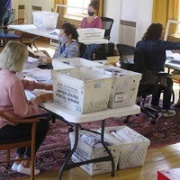
ELECTION 2020
15 August 2020
Which way of casting a ballot is best for you this year? Latest news and research on the 2020 election administration.
The non-partisan MIT Election Lab conducts research and collaborates with other election experts and administrators across the country to help make voting in the U.S. safe, secure, trustworthy, and effective.
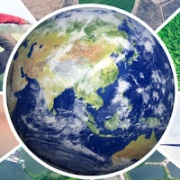
SOLVING CLIMATE
$25 million gift launches ambitious new effort tackling poverty and climate change
The King Climate Action Initiative at J-PAL will develop large-scale climate-response programs for some of the world’s most vulnerable populations.
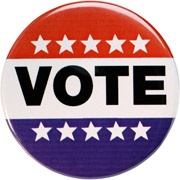
ELECTION 2020
13 August 2020
The Stanford-MIT Project on a Healthy Election
This project addresses the unprecedented and ongoing threat that the Covid-19 pandemic poses to the 2020 elections, bringing academics and election administration experts together to assess and promote best practices to ensure the election can proceed with integrity, safety, and equal access.
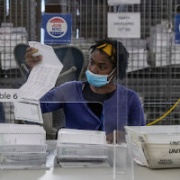
ELECTION 2020
31 July 2020
Research predicts a wave of “lost votes” this fall, further complicating the 2020 election
A new study by MIT election expert Charles Stewart III shows that mail-in-voting has a higher rate of "lost" or uncounted votes than voting in person, further complicating the 2020 election. "If I were advising someone at lower health risk, I would say think about early in-person voting," said Stewart. "But go early...don't wait until the last minute."
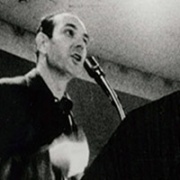
IN MEMORIAM
Louis Kampf, distinguished professor emeritus of literature and women's and gender studies, dies at 91
Brilliant scholar, progressive activist, educational innovator, jazz connoisseur, Kampf is remembered as, above all, an unsurpassed friend. He leaves behind an enormous number of people who deeply miss him and will carry his memory into the future.

THE MEANINGS OF MASKS
Masks can reveal new possibilities
Manduhai Buyandelger | Anthropology
"In shamanic rituals and in computer-mediated virtual reality, a mask conceals one identity to reveal new possibilities. Seen in this light, virus protection masks offer an opportunity to replace a visage of fear with a public expression of strength as a community." — Manduhai Buyandelger, MIT Associate Professor of Anthropology
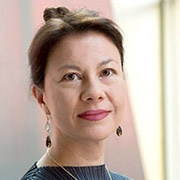
THE MEANINGS OF MASKS
The Mask as Public Spiritedness - 公德心
Emma Teng | History
"Norms in East Asian countries support the notion that 'doing something for the community good is good for me also.' It would be unthinkable to discuss sacrificing older people to the pandemic using a cost-benefit analysis. It is also considered a social responsibility to do one’s part in controlling the pandemic to ensure that schools remain open for the younger generation."
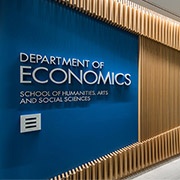
ECONOMIC IMPACTS
COVID-19 Research Working Papers from MIT Economics
As research continues into Covid-19 and its impact on many facets of life, MIT Economics has collected all the faculty's working papers on one page.
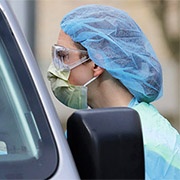
ECONOMIC IMPACTS
Conditions needed to reopen the U.S. economy
Here’s what economists say the U.S. needs in order to start returning to normal amid the coronavirus outbreak — and how the economy can survive in the meantime.
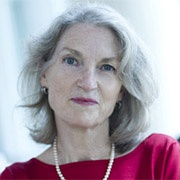
ECONOMIC IMPACTS
Europe has kept down pandemic unemployment — and the U.S. hasn’t. Here’s why.
Kathleen Thelen, Ford Professor of Political Science, examines disparities in US and European unemployment rates in the face of Covid-19
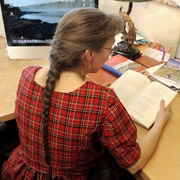
EDUCATION + DAILY LIFE
Faculty Reflections | Anne McCants, Professor of History
An ongoing series of notes from the Director of the MIT Concourse Program for her students and others during the pandemic
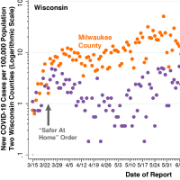
ECONOMIC IMPACTS
Life Under Quarantine
MIT economist Jeffrey E. Harris reflects on the economics of quarantine in a series of articles.

EDUCATION | SCIENCE WRITERS
Undark magazine | Covid-19 coverage
Undark, the acclaimed magazine from our Knight Science Journalism Program, provides ongoing, in-depth journalistic coverage by science writers on SARS-CoV-2, the novel coronavirus responsible for the Covid-19 pandemic.

THE MEANINGS OF MASKS
The expressive power of masks | Sara Brown
MIT professor and theater designer on masks as archetypes, protection, the performance of self, and care for others
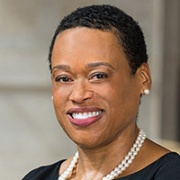
MAKING A JUST SOCIETY | RESTORATIVE JUSTICE
Unearthing the stories of yesterday’s George Floyds
"When we call the victims’ descendants to share our findings, they tell us ‘I never thought I’d get this call.’ The scars remain, and luckily, because we have found documents, so does proof." — Melissa Nobles, Professor of Political Science; MIT Chancellor 2021 - ; Kenan Sahin Dean, MIT School of Humanities, Arts, and Social Sciences 2015-2021
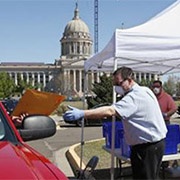
ELECTION 2020
16 July 2020
The Stanford-MIT Healthy Elections project
Working together to promote integrity, safety, and equal access in the 2020 U.S. election.
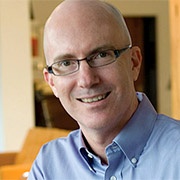
ELECTION 2020
3Q with Charles Stewart III: How to make the November 2020 elections safe and secure
MIT-SHASS News "Will the November 2020 election be delayed? The answer is, 'no.' There is no statutory or constitutional authority to do that. Even if the asteroids are raining on our heads and the zombies are roaming the streets on November 3, we will be voting."
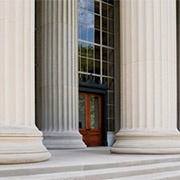
DEMOCRACY AND DEI
Making A Just Society
Resources from the MIT School of Humanities, Arts, and Social Sciences. The Making A Just Society websection includes these categories: Research; Books; the MIT & Slavery Project; Indigenous Peoples; Undergraduate Courses; Free Online MIT Courses; Other MIT Resources; and Elective Affinities, relevant resources beyond MIT.
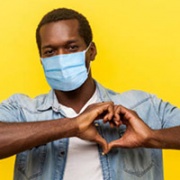
PERSPECTIVES FOR THE PANDEMIC
Series | The Meanings of Masks
As The Washington Post has reported, "at the heart of the dismal US coronavirus response" is a "fraught relationship with masks." In this series of short commentaries, MIT faculty delve into the historic, creative, and cultural meanings of masks, offering new ways to think about, appreciate, and practice protective masking — currently a primary way to save lives and to contain the Covid-19 pandemic.
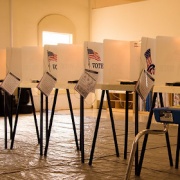
ELECTION 2020 | VOTING BY MAIL
13 July 2020
Ten recommendations for conducting a healthy and trustworthy 2020 election
In Lawfare, ten recommendations from MIT election expert Charles Stewart III and Nathaniel Persily of Stanford Law. "The Covid-19 pandemic...requires an extraordinary commitment at all levels of government, and from the media, political parties, campaigns and voters. The country can meet this challenge if Americans begin to prepare immediately."
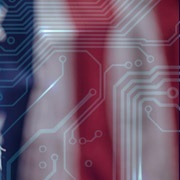
ELECTION 2020
10 July 2020
Nationwide experts make 14 urgent recommendations for the 2020 elections. Learn what citizens can do to help.
This is an historic American document. "Fair Elections During a Crisis" outlines 14 urgent recommendations by a nationwide team of U.S. election experts, including MIT Professor Charles Stewart III, founder of the MIT Election Data and Science Lab.
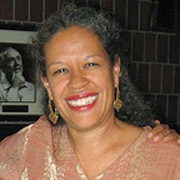
MAKING A JUST SOCIETY | DEI
Everyone's work
Professor of Writing Helen Elaine Lee calls for more engagement in creating racial justice.
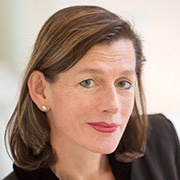
CIVIC PERSPECTIVES
3 Questions: Heather Hendershot on media coverage of the pandemic
MIT comparative media expert discusses the stark differences in pandemic reporting and coverage across US media platforms.

HEALTHCARE
Data suggest younger cohorts transmit their infections to less socially mobile older adults
Economist Jeffrey Harris delivers his findings in a preprint paper
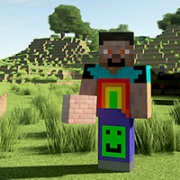
THE MEANINGS OF MASKS
The mask is a badge of honor | Eric Klopfer
Comparative Media Studies
"In this pandemic era, what a mask really says is, ‘I care about YOU.’ The mask indicates that you are protecting the health of others during a crisis."
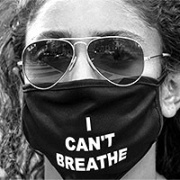
THE MEANINGS OF MASKS
A collective cry for justice | Graham M. Jones
Anthropology
"The mask is one of the most important human artifacts in all of anthropology. It is a tool of transformation that allows its wearers to transcend themselves, taking on timeless roles in ritual dramas, and as actors in a broader social drama."
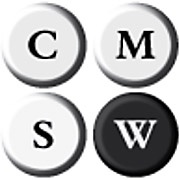
RACIAL EQUITY AND SOCIAL JUSTICE
A Path Forward
Statement from the faculty of the MIT Comparative Media Studies/Writing program
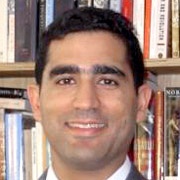
MAKING A JUST SOCIETY
Voices from the MIT Community Vigil
Historian Malick Ghachem delivers remarks on a divided moment.
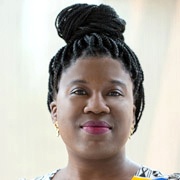
MAKING A JUST SOCIETY
Words + Words + Words
Sandy Alexandre, Associate Professor of Literature, honors and thanks all of the justice-seeking words that came before our 2020 ones.
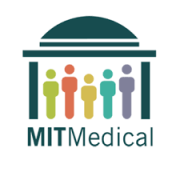
HEALTH AND MEDICINE
MIT Community Wellness
Community Wellness at MIT Medical has compiled numerous resources to help individuals reduce stress, build routine, and find connection. MIT community members can register for free virtual wellness classes, parenting resources, and more.
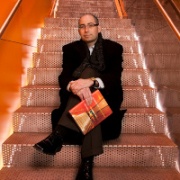
ETHICS, COMPUTING, AND AI
A responsible path to computing advances
Professor David Kaiser and Julie Shah lead initiative to embed ethical and social responsibilities in MIT's computing and advanced tech education, research, and community engagements.
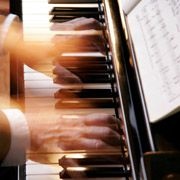
THE ARTS
Arts from Anywhere
During this time of physical distancing to limit the spread of Covid-19, the Arts at MIT offer ways to stay connected to the MIT Arts Community from wherever you are.

CLIMATE
Solving Climate | Humanistic Perspectives from MIT
In this ongoing series, MIT faculty, students, and alumni in the humanistic fields share perspectives that are significant for solving the economic, political, ethical, and social dimensions of climate change.

PANDEMIC
Research + Resources for the Pandemic
Research and commentary from the MIT SHASS faculty and graduate students to inform policy and increase public understanding about the complex pandemic landscape. Content areas include the impacts of the pandemic on healthcare, the economy, education, the 2020 elections, daily life, and democracy. There is also a channel with music and other creative works that offer contemplative space, meaning, and uplift.
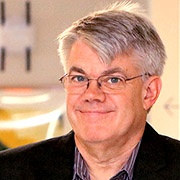
HONORS AND AWARDS
Stephen Morris named the inaugural Peter A. Diamond Professor of Economics
MIT Department of Economics establishes new professorship honoring Institute Professor and Nobel Laureate.
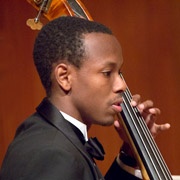

DAILY LIFE
An ode to the humble balcony
In The New York Times, Bernardo Zacka writes: "[A balcony] is private, yet public; exposed, yet secluded. It offers company without the demands of intimacy, and we should never take it for granted again."
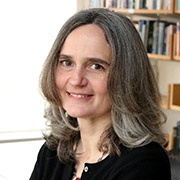
DAILY LIFE
Taking refuge in the kitchen
Heather Paxson talks with the Radcliffe Institute on how the pandemic is changing the ways we eat.
MAKING A JUST SOCIETY
Honoring Juneteenth 2020
Juneteenth, the earliest known public celebration of the end of slavery in the U.S. took place on June 19, 1865, in Galveston, Texas. The day is now observed annually across the country as a day of celebration, reflection, remembrance of ancestors — and dedication to helping the nation fulfill its ideals. In 2020, the day will include demonstrations to call for an end to systemic racism.
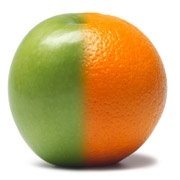
MEET THE MIT BILINGUALS
Salute to Seniors | Class of 2020
35 of the many outstanding MIT 2020 students who have focused on both humanistic and scientific/technical fields reflect on their MIT education — and their visions for the future.

MEET THE MIT BILINGUALS
Voices from Global Languages
Members of the Class of 2020 on their language studies
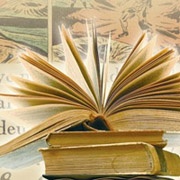
MEET THE MIT BILINGUALS
Salute to the 2020 Literature graduates
This year’s Literature majors received degrees from two MIT Schools.
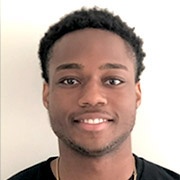
MEET THE MIT BILINGUALS
Salute to the 2020 MIT Political Science graduates
Leveraging unique undergraduate opportunities, MIT political science majors pursue bright post-graduation prospects.
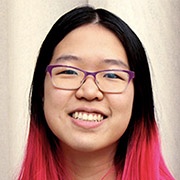
MEET THE MIT BILINGUALS
Kathryn Jiang ’20 | Literature + Mathematics
“Literature and math both try to explain how the world works; literature through stories and math through patterns," and these different perspectives are needed to solve today’s complex problems. “So much of this world is messy," Jiang says, "and MIT’s humanistic subjects give you a way to think about messy data, qualitative data. That’s really valuable.”
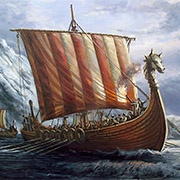
EDUCATION | THE ARTS
Partiing advice from MIT historian Eric Goldberg to the students in his Vikings class
Based on the advice from Odin in the Old Norse poem Hávamál (Sayings of the High One)
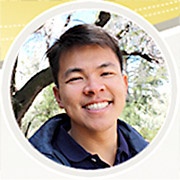
THE ARTS | EDUCATION
"An Index for the Time Being" | Poetry by Jia Hui Lee
In 21W.771 (Writing Poetry Workshop), taught by acclaimed poet Erica Funkhouser, Lee creates a work for this moment of isolation.
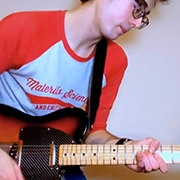
THE ARTS
Quaranteen | by Kyle Markland '22
A pandemic anthem written and produced by scientist/engineer/musician/composer Kyle Markland '22, who also plays in the MIT Symphony Orchestra.
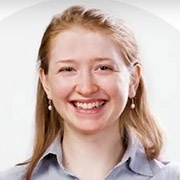
MEET THE MIT BILINGUALS
Emily Soice ’20 | Environmental Engineering + Music
"I came to MIT to be an environmental engineer. I've always loved the environment and wanted to protect it. We also need leadership, which is what I've learned the most in music."
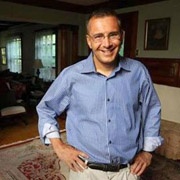
ECONOMIC IMPACT
Can the economy recover in parts of the country as early as May 2020? (No.)
In an interview with ABC News, professor of economics Jonathan Gruber discusses the benefits of the stimulus package, and says that social distancing and economic measures “won’t end until we have a vaccine.”

DAILY LIFE
A Conversation: Alan Lightman and Oprah Winfrey
In this conversation, part of Winfrey's 2020 Vision Tour, Oprah talks with MIT physicist and writer Alan Lightman about the presence, authenticity, and meanings of spiritual experience.
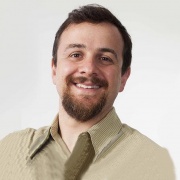
EDUCATION
The biggest distance-learning experiment in history
On NPR's All Things Considered, Justin Reich, CMS/W Assistant Professor, and director of the MIT Teaching Systems Lab reflects on best practices for remote learning. Plus a link to collection of all Reich's recent public commentaries.
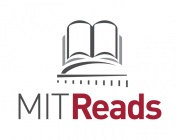
THE ARTS | LITERATURE
MIT Reads
MIT Reads is an all-MIT reading experience that aims to build community and foster understanding. Events and discussions are open to the entire MIT community.
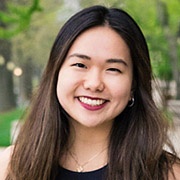
MEET THE MIT BILINGUALS
Claudia Chen ’20 | Comparative Media Studies + MechE
“As a MechE student, I think about technical solutions to our world’s biggest problems. As a CMS student, I think about the effects and implications these technical solutions have on our society and our media ecosystems."
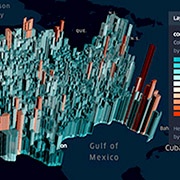
IN THE CLASSROOM
Course Profile: Data and Society
A new course in the Computing and Society Concentration, taught by Eden Medina and Sarah Williams, engages MIT students in the ethics and societal implications of data.
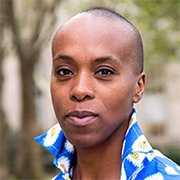
HONORS AND AWARDS
MIT Anthropologist Amah Edoh receives Baker Award for Excellence in Undergraduate Teaching
This Institute-wide award is given every year to an MIT faculty member, recognizing an “exceptional interest and ability in the instruction of undergraduates.” It is the only teaching award in which the nomination and selection of the recipients is done entirely by students.
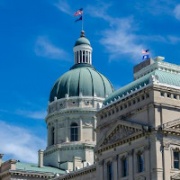
RESEARCH
J-PAL North America | Covid19 Evidence Portal
The new Covid19 Evidence Portal synthesizes rigorous research across health, education, and the social safety net to provide recommendations to state and local leaders responding to the COVID-19 pandemic.

ECONOMIC IMPACTS + HEALTHCARE ETHICS
MIT economist Parag Pathak shares a new research paper about ventilator rationing schemes.
New Paper: In the wake of the Covid-19 pandemic, the rationing of medical resources has become a critical issue. Nearly all existing triage protocols are based on a priority point system, in which an explicit formula specifies the order in which the total supply of a particular resource, such as a ventilator, is to be rationed for eligible patients.
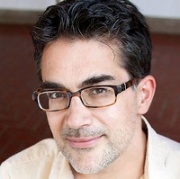
DAILY LIFE
What the pandemic tells us about personal identity
Kieran Setiya writes in The New Statesman: "We have become more used to seeing others through screens and software, but we are embodied beings and digital communication can feel lacking. What effect will this have on us?"
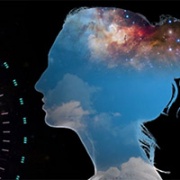
COMPUTING AND AI | HUMANISTIC PERSEPCTIVES FROM MIT
Computing and AI: Humanistic Perspectives from MIT
"With a sense of promise and urgency, we are embarked at MIT on an accelerated effort to more fully integrate the humanistic and technical forms of discovery in our curriculum and research, in our institutional structure, and in our habits of mind and action."
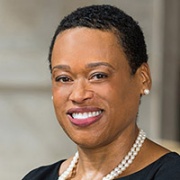
COMPUTING AND AI: HUMANISTIC PERSPECTIVES FROM MIT
Foreword | Melissa Nobles
Dean, MIT School of Humanities, Arts, and Social Sciences, 2015-2021; MIT Chancellor, 2021 —
"With a sense of promise and urgency, we are embarked at MIT on an accelerated effort to more fully integrate the humanistic and technical forms of discovery in our curriculum and research, in our institutional structure, and in our habits of mind and action. Together, the commentaries in this series offer a guidebook to myriad productive ways that humanistic, scientific, and technical fields can join forces at MIT and elsewhere."
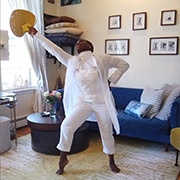
ELECTIVE AFFINITIES | PERFORMANCE
A Call To Unite, by the Alvin Ailey Dance Foundation
The finalé of Ailey's "Revelations" ballet transformed for the pandemic era; performed and published by the Alvin Alley Dance Foundation

ETHICS, COMPUTING, AND AI
Ethics, Computing, and AI | Perspectives from MIT
To support ongoing planning for the Stephen A. Schwarzman College of Computing, Dean Melissa Nobles invited faculty from all five MIT schools to offer perspectives on the societal and ethical dimensions of emerging technologies. This series presents the resulting commentaries — practical, inspiring, concerned, and clear-eyed views from an optimistic community deeply engaged with one of the most consequential questions of our time.
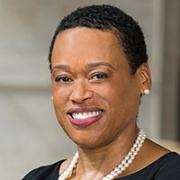
ETHICS, COMPUTING, AND AI | PERSPECTIVES FROM MIT
Foreword | Melissa Nobles
"These commentaries implore us to be collaborative, foresighted, and courageous as we shape the new Stephen A. Schwarzman College of Computing, and to proceed with judicious humility. Rightly so. We are embarking on an endeavor that will influence nearly every aspect of the human future."
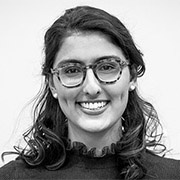
MEET THE MIT BILINGUALS
Talia Khan '20 | Materials Science + Music
“When I was looking for a university, I wanted one with access to top-quality music teachers and top-quality science. MIT really fit the bill. At MIT, we have the same quality of music education as conservatories, and you also have the rest of the MIT education.”
HUMOR AND HEALTH
Why we need humor at a time like this
At Oxford University Press blog, William Costanzo explores the social and medicinal aspects of humor.
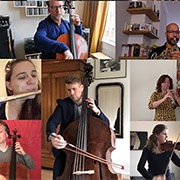
ELECTIVE AFFINITIES | MUSIC
"Ode to Joy" online
Beethoven’s "Ode to Joy" performed by members of the Rotterdam Philharmonic Orchestra while keeping #StayAtHome protocols.
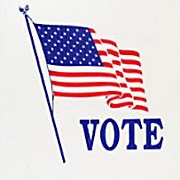
ELECTION 2020
Connecting with voters in a time of social distancing
In Scientific American, J-PAL affiliate Donald P. Green shares research on a powerful way to get out the vote without having to canvas in person.

ELECTIVE AFFINITIES | LITERATURE
Camus on the Coronavirus
Writing in The New York Times, philosopher Alain de Botton says that Camus "reminds us that suffering is random, and that is the kindest thing one can say about it."
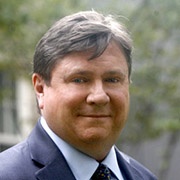
CIVIC PERSPECTIVES
Will the Covid-19 pandemic change national security strategy?
At MIT’s Starr Forum, experts consider if the coronavirus crisis will catalyze savvier 21st C. security strategies: e.g., to include health care, aid for workers and communities, protection for democracy, and increased international collaboration to manage novel pathogens.
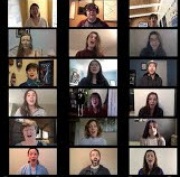
THE ARTS
"The Longest Time" (quarantine edition)
Members of Canadian choirs perform a new version of Billy Joel's "The Longest Time."

EDUCATION
Rolling out remote learning at MIT
MIT News — Meghan Perdue, MIT-SHASS digital learning fellow, catalyzes MIT’s plans to shift to online teaching in response to the Covid-19 pandemic.
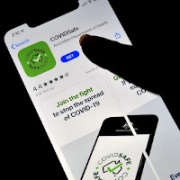
CIVIC PERSPECTIVES
The tension between privacy and coronavirus contact-tracing
KSJ Fellow Anil Ananthaswamy writes in The Boston Globe that "We have to ensure that contact-tracing methods that compromise our privacy don’t become the norm."
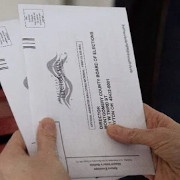
ELECTION 2020
28 April 2020
Let's put the vote-by-mail 'fraud' myth to rest.
In The Hill, election experts Charles Stewart III of MIT and Amber McReynolds write that claims by some politicians that voting-by-mail would lead to massive voter fraud are "simply not true. Vote fraud in the United States is exceedingly rare, with mailed ballots and otherwise."
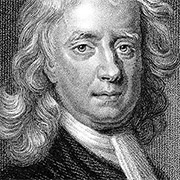
DAILY LIFE
The truth about Isaac Newton’s productive plague
In The New Yorker, MIT Professor of Science Writing Tom Levenson writes that the idea that the plague woke the brilliance in Newton is both wrong and misleading.
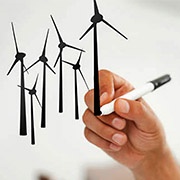
CLIMATE 2020 | HUMANISTIC PERSPECTIVES FROM MIT
Kieran Setiya | The ethics of climate change
"Almost anyone engaged with global issues of human well-being, the distribution of resources, or the future of society is doing moral philosophy. Even the most technocratic assessment of costs and benefits makes assumptions about the value of human life and the demands of justice."

HEALTH + ECONOMIC IMPACTS | TELEMEDICINE
3Q: A doctor’s view from the front lines
SHASS News: Physician and MIT economist Jeffrey E. Harris shares insights on healthcare during the Covid-19 pandemic and the vital role of telehealth.

HEALTHCARE + ECONOMIC IMPACTS
J-PAL's response to Covid-19
The Abdul Latif Jameel Poverty Action Lab (J-PAL) has organized an ongoing, evolving response to the Covid-19 pandemic. See initiatives for off-cycle funding rounds for Covid-related research projects.
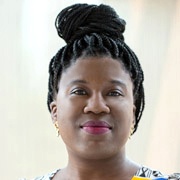
INNOVATION
3Q with Sandy Alexandre: On the literary roots of many technological innovations
In 2019, Alexandre was awarded a prestigious Bose Research Grant, which supports her study of the under-explored phenomenon of ideas that first appear in speculative fiction becoming technological and social reality.
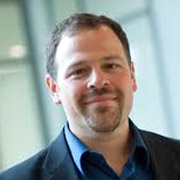
ELECTION 2020
3Q with political scientist Adam Berinsky
Impact of the pandemic on U.S. political life
"As they do in wartime "people are willing to give the government broader latitude, even to curtail civil liberties, to address this pandemic crisis. But this effect is also short-lived. People are willing to give up some civil liberties for months, but not years."
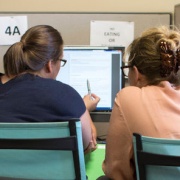
ECONOMIC IMPACTS + HEALTH
Why we need to ease access to the safety net — now
In Governing magazine, MIT health economist Amy Finkelstein writes the economic devastation of the coronavirus pandemic is making benefit programs more important than ever.
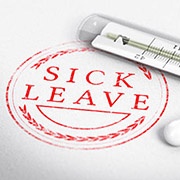
ECONOMIC IMPACTS | HEALTH POLICY
MIT economist Jonathan Gruber calls for federal sick leave program in wake of the pandemic
On Boston Public Radio, Gruber warns that without federal intervention the lack of economic productivity due to workers missing work could lead to a chain of events that ripples through the economy.
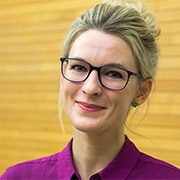
CLIMATE 2020
Amy Moran-Thomas receives the 2020 Levitan Prize in the Humanities
The award will support her in-progress book, Mine: A Family History of Place, Race, and Planetary Health, which will "excavate the cultural histories and everyday social fabrics behind the deep sedimentation of American generational identities and fossil fuel legacies.”
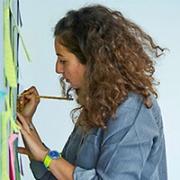
SOLVING CLIMATE
Imaginative Capacities | Nadia Christidi, PhD Student in MIT HASTS
Christidi focuses on three cities and the role that the arts play in the ability of planning institutions to imagine, plan, and set policy for possible futures: "I think we are going to need a lot of imagination going forward," she says. "As climate change gets underway, we’re seeing a lot more emphasis on adaptation — and imagination is key to adapting to a set of totally different circumstances."
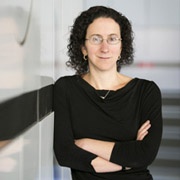
HEALTH | ECONOMIC IMPACTS
A healthy understanding
MIT professor of economics Amy Finkelstein has changed what we know about Medicaid, Medicare, the economics of health care — and, increasingly, medical care itself.
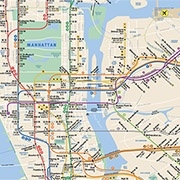
HEALTHCARE + HEALTH ECONOMICS
Subways seeded the massive coronavirus epidemic in New York City
In a new working paper, Professor of Economics Jeffrey E. Harris writes that New York City’s multi-tentacled subway system was a major disseminator – if not the principal transmission vehicle – of coronavirus infection.
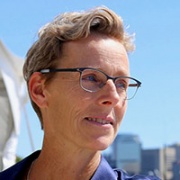
CIVIC PERSPECTIVES
The pandemic is not a natural disaster
In The New Yorker, historian Kate Brown, a Professor of Science, Technology, and Society at MIT, writes that the coronavirus isn’t just a public-health crisis. It’s an ecological one.
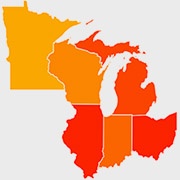
ELECTION 2020
State Election Landscapes: The Great Lakes States
For this project, the MIT Election Lab collects an enhanced set of data and descriptive materials about the administration of elections in Illinois, Indiana, Michigan, Minnesota, Ohio, and Wisconsin.
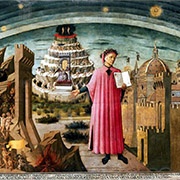
ELECTIVE AFFINITIES | POETRY
Reading of Dante's Inferno
Annual reading at the Poet's Corner, St. John the Divine Cathedral, New York City
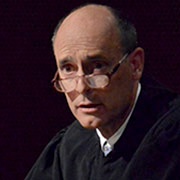
CIVIC PERSPECTIVES | HEALTHCARE
It’s high time we fought this virus the American way
The administration has all the authority it needs to produce medical supplies and prepare for a potential vaccine, argues James E Baker in a recent New York Times opinion piece.
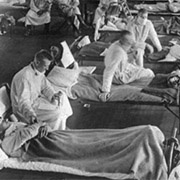
ELECTIVE AFFINITIES | LITERATURE
How pandemics seep into literature
Commentary by Elizabeth Outka in The Paris Review: "Covid-19 promises to alter us all in strange ways. It’s a paradigm-shifting event that divides lives and cultures into a before and after. We will emerge changed, though how those changes will manifest is far from certain."

THE ARTS | MUSIC FROM MIT
D'amor languire, balatta a due voci
A gorgeous, stirring work from 1405, reconstructed by MIT musicologist Michael Cuthbert; composed by by Antonio Zachara da Teramo; and performed by Ensemble Micrologus.
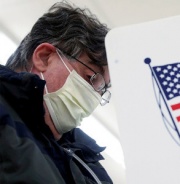
ELECTIVE AFFINITIES | ELECTION 2020
9 April 2020
How to hold elections during a pandemic
Recommended by the MIT Election Lab: In the National Review, Joshua Kleinfeld writes that, "The United States is the beacon of democracy around the world. Let’s show the world that no pandemic can stop our elections."
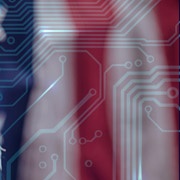
ELECTION 2020
Video series from the MIT Election Data and Science Lab
Conducting elections in the age of Covid-19
Videos feature election administrators, practitioners, and academic researhers describing preparations for elections that are both safe and secure during the pandemic.
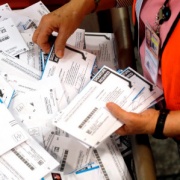
ELECTION 2020 | VOTE BY MAIL
6 April 2020
More voting by mail would make the 2020 election safer for our health, but can it be ready in time?
Writing in The Washington Post, MIT election expert Charles Stewart III writes why it’s not clear whether “at-home voting” can be ramped up nationwide by November.
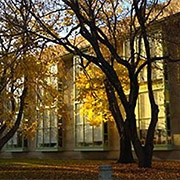
EDUCATION
MIT Libraries | Resources during the Pandemic
All MIT Libraries (including 24-hour spaces and book drops) are closed until further notice, but will continue to provide resources, services, and consulting online.
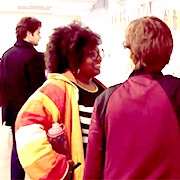
THE ARTS | MIT THEATER ARTS
Playwrights Lab Festival
Student playwrights see their works performed on stage, a first-of-its-kind collaboration between MIT students and theater professionals.
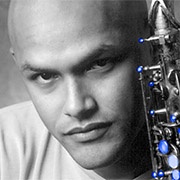
THE ARTS
En Pie De Lucha (Getting back up for battle)
In the wake of the humanitarian crisis in Puerto Rico, MIT’s Festival Jazz Ensemble joins forces with acclaimed musician Miguel Zenón to provide aid.

THE ARTS
Illuminating Passion: 50 Years of Jazz at MIT
MIT has a vibrant arts scene, and the jazz music program is one of its shining stars.
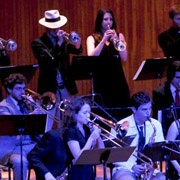
THE ARTS
The MIT Festival Jazz Ensemble
The MIT Festival Jazz Ensemble performs "Feeling Good," arrangement by Garrett Parrish

CLIMATE 2020 | HUMANISTIC PERSPECTIVES FROM MIT
Anne McCants | Clues from climate change in history
How, in the nadir of the Little Ice Age, did the Dutch create a Golden Age? "History shows that not everywhere fares equally poorly when faced with climatic stresses. Open-access societies — ones that tolerate a diversity of views and do not restrict agency to a preordained elite — have proved more innovative and resilient than less-open ones."

HEALTH AND MEDICINE
MIT Solve Challenge
How can communities around the world prepare for, detect, and respond to emerging pandemics and health security threats?

DAILY LIFE | EDUCATION
When the coronavirus pandemic drove life online
On NBC News, MIT Professor Sherry Turkle discusses how the pandemic is inspiring people and groups around the world to use the internet in new and creative ways to connect: "The move online could end up changing what it means to be online," she says.
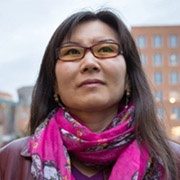
EDUCATION
An ethnology of disruptions in Cambridge, MA
At American Ethnologist, MIT anthropologist Manduhai Buyandelger tracks racism, virtual realities, and world building in Cambridge during the Covid-19 pandemic
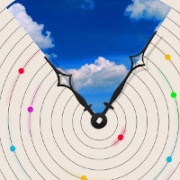
DAILY LIFE
The virus is a reminder of something lost long ago
In The Atlantic, MIT Professor of Writing Alan Lightman observes that the pandemic may force "many of us to slow down, to spend more time in reflection, away from the noise and heave of the world. With more quiet time, we have an opportunity to think about who we are, as individuals and as a society."

MEET THE MIT BILINGUALS
Charlotte Minsky '20 | History/CS + Planetary Science
Studying science has made her a better historian, Minsky says. And studying history has made her a better scientist.
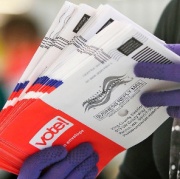
ELECTION 2020 | VOTING BY MAIL
2 April 2020
Voting by mail is the hot new idea. Is there time to make it work?
In The New York Times, MIT Professor and electoral expert Charles Stewart III discusses how the U.S. states are searching, rapidly, for ways to protect democracy’s most sacred institution.
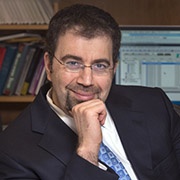
CIVIC PERSPECTIVES | DEMOCRACY
The Coronavirus exposed America’s authoritarian turn
In Foreign Affairs, MIT economist and Institute Professor Daron Acemoglu comments on the slow, inadequate U.S. federal response to the coronavirus threat, noting that independent expertise always dies first when democracy recedes.
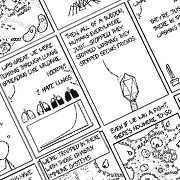
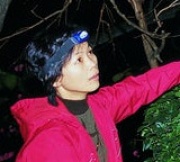
HEALTH | VIRUS ORIGINS
KSJ alumna reports on how China’s “Bat Woman” hunted down viruses from SARS to the new Coronavirus
In Scientific American, Wuhan-based virologist and KSJ alumna Shi Zhengli has identified dozens of deadly SARS-like viruses in bat caves, and she warns there are more out there

ELECTIVE AFFINITIES | DAILY LIFE
Old treatments for a novel coronavirus
"Of course we want every discovery modern medicine can provide. But to survive this period with our sanity intact, we also need to access timeless aspects of our lives." — Renée Loth in The Boston Globe

DAILY LIFE
Embracing Humor
"Many studies have shown that laughter and humor have a huge array of benefits, including strengthening the immune system, reducing pain and stress, and increasing energy. If you are going through a difficult experience or feeling down, humor may accidently find you. Embrace it."
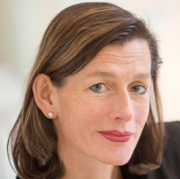
CIVIC PERSPECTIVES | OPINION
The virtuous life of MIT Professor John G. Trump
In an opinion piece at The Washington Post, MIT media scholar Heather Hendershot delves into the life of President Trump's erudite and charitable uncle, Dr. John Trump '33, who taught at MIT for 40 years.
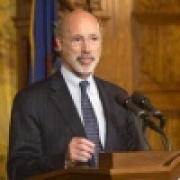
HEALTHCARE | STAY AT HOME
Gov. Tom Wolf, PhD '81, Political Science, addresses Pennsylvanians on the Covid-19 Virus
Stay at home. This is a disruption unlike anything since "at least the Civil War."
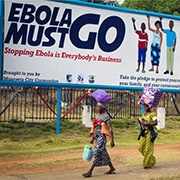
HEALTHCARE | TRUSTED INFORMATION
How door-to-door canvassing slowed an epidemic
Study finds that in Liberia, trusted volunteers limited damage from Ebola by distributing information within their own communities.
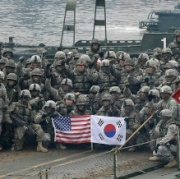
CIVIC PERSPECTIVES + ECONOMIC IMPACTS
How coronavirus will affect the US military
Yes, modern armies rely on equipment and training — and a healthy fighting force. Rachel Tecott and Erik Sand, MIT Political Science PhD candidates, comment on US military readiness in The Washington Post.
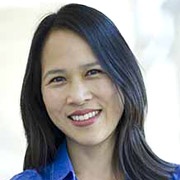
HEALTHCARE | TRUSTED INFORMATION
MIT GOV/LAB research shows why honest, trusted communication is key to stemming Covid-19
In Forbes: Study by Lily L. Tsai, Ford Professor of Political Science and head of the MIT GOV/LAB, and Benjamin S. Morse, a PhD candidate at MIT Political Science, finds that in Liberia, when many did not believe Ebola information from the corrupt government, trusted community volunteers could limit damage from Ebola by distributing information to neighbors.
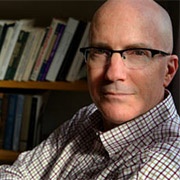
ELECTION 2020
30 March 2020
Can Election Day 2020 be secure — and safe for in-person voting?
In Marketwatch, Charles Stewart III, the Kenan Sahin Distinguished Professor of Political Science, and head of the MIT Election Data and Science Lab, writes about logistical challenges facing election officials.
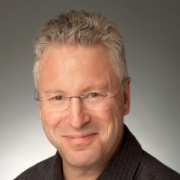
CIVIC PERSPECTIVES
The attempt to rebrand the coronavirus
In The Atlantic, Author and Professor of Science Writing Tom Levenson writes that the non-scientific term "Wuhan virus" was intended to label Covid-19 as a Chinese scourge — ignoring, and stirring up, an ugly history.
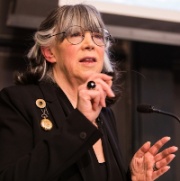
DEMOCRACY
Understanding law in everyday life
Susan Silbey, a pioneer in studying popular attitudes toward the legal system, discussed her research while giving MIT’s annual Killian Lecture.

ELECTION 2020
27 March 2020
Election officials scrambling to meet pandemic voting challenges
In National Memo, MIT Professor of Political Science Charles Stewart III, analyzes the scramble for voting materials, machinery, and manpower — all the behind-the-scenes actions following the seemingly simple decisions by 10 states and territories to postpone primaries until June.
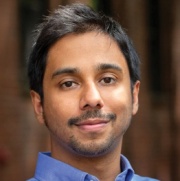
Blood and politics in India
New book explores the use of blood in political rhetoric, imagery, and activism, and even the politics of blood drives.
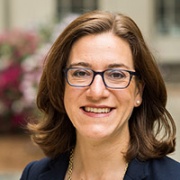
CLIMATE 2020 | HUMANISTIC PERSPECTIVES FROM MIT
Parrish Bergquist '19 | Civic Opinion
"The political challenges of addressing climate change are at least as thorny as the technological challenges, though in different ways."

CLIMATE 2020 | HUMANISTIC PERSPECTIVES FROM MIT
KSJ Fellow Thiago Medaglia on science journalism for a world in crisis
"As an environmental journalist, I have a deep connection with the natural world. I've also learned that it is essential to connect with people. As a reporter, you learn that fighting climate change includes informing the public about harmful policies and practices by governments and corporations."
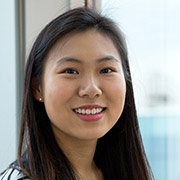
MEET THE MIT BILINGUALS
Christine Soh '20 | CS/Engineering + Linguistics
With her dual degrees, Soh is prepared to make new tools in computational linguistics. Potential applications include improving speech recognition software and making machine-produced speech sound more natural.
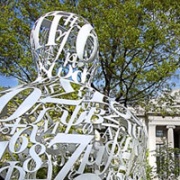
HONORS AND AWARDS
38 MIT students selected as 2020 Burchard Scholars
The selective Burchard Scholars program recognizes students who have demonstrated outstanding abilities and academic excellence in some aspect of the humanistic fields — the humanities, arts, and social sciences — as well as in the STEM fields.
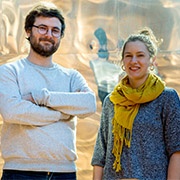
ETHICS OF TECHNOLOGY
3Q with Marion Boulicault and Milo Phillips-Brown
on integrating ethics into a technical curriculum
"The approach we are piloting at MIT is teaching ethics as a set of skills (what Aristotle would call techné). If we’re going to make a difference in whether our students make things ethically and responsibly, they need ethical skills that they can apply to their own work."
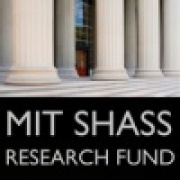
SHASS announces 8 Research Fund recipients for 2019
The SHASS Research Fund supports research in the areas of humanities, arts, and social sciences that shows promise of making an important contribution to the proposed area of activity. The School is pleased to announce eight recipients for 2019.
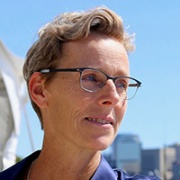
Kate Brown's book is a finalist for the National Book Critics Circle Award
Manual for Survival: A Chernobyl Guide to the Future “is a magisterial blend of historical research, investigative journalism and poetic reportage.” — The Economist
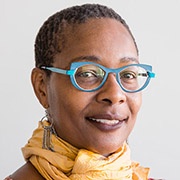
MEET MIT'S HUMANISTIC FACULTY
3Q with historian Kenda Mutongi
On Africa, women, power — and human decency
"Lately I have been trying to think of African history from the perspective of goodness and basic human decency. Of course, conflicts exist, and do a great deal of damage in our lives, and we must confront them — but we must also allow ourselves to appreciate basic goodness and kindness when we see it."
